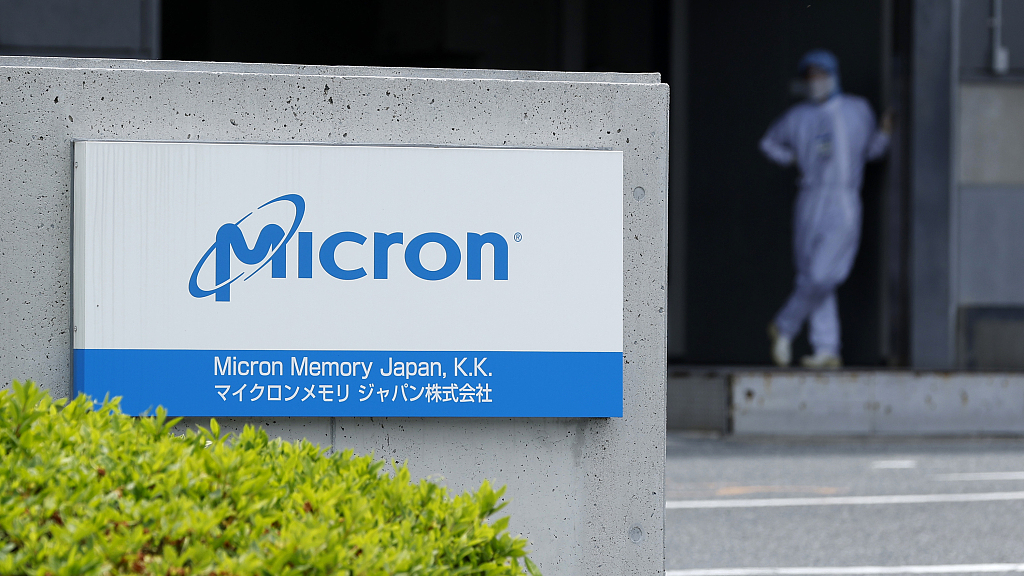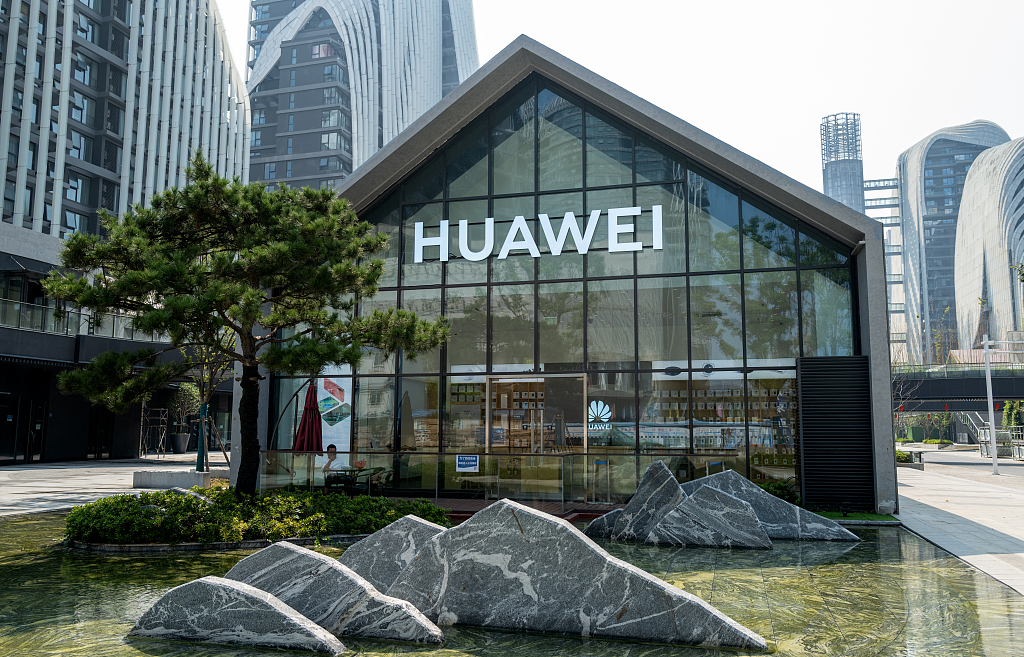
A sign marks the entrance of a plant operated by Micron Memory Japan K.K., a subsidiary of Micron Technology, in Higashihiroshima, Hiroshima Prefecture, Japan, May 22, 2023. /CFP
A sign marks the entrance of a plant operated by Micron Memory Japan K.K., a subsidiary of Micron Technology, in Higashihiroshima, Hiroshima Prefecture, Japan, May 22, 2023. /CFP
Editor's note: Bradley Blankenship, a special commentator on current affairs for CGTN, is a Prague-based American journalist, political analyst and freelance reporter. The article reflects the author's opinions and not necessarily the views of CGTN.
The United States on Monday expressed "serious concerns" about a decision by the Cyberspace Administration of China (CAC), which effectively banned U.S. chipmaker Micron Technology from selling to Chinese companies working on key infrastructure projects. According to the CAC, the firm's products "have relatively serious cybersecurity risks," which could damage China's information supply chains or impact national security.
By contrast, the U.S. Department of Commerce (DOC) has said the allegations "have no basis in fact." The DOC said in a statement: "This action, along with recent raids and targeting of other American firms, is inconsistent with [China's] assertions that it is opening its markets and committed to a transparent regulatory framework."
What is extraordinarily ironic about this position from the U.S., however, is that Washington itself has pushed for a global coalition to restrict exports of advanced semiconductors and related technology to China. On October 7, 2022, the DOC itself announced export controls on chipmaking equipment, design software and even engineers who support semiconductor manufacturing in China. The entire purpose of this move was to restrict China's high-tech sectors and reign in Beijing's economic growth.
So, in this respect, how does Washington even have the right to be annoyed? What's more, the U.S. and its allies have launched similar attacks on Chinese high-tech companies — but, I would argue, these were far more unreasonable for reasons I'll delve into later. But what's important is that the U.S. has pressured its allies into banning Chinese companies, for example, Huawei and ZTE, from working on telecom infrastructure for fear of unnamed security concerns.

An exterior view of a Huawei store in Nanjing, east China's Jiangsu Province, September 13, 2019. /CFP
An exterior view of a Huawei store in Nanjing, east China's Jiangsu Province, September 13, 2019. /CFP
In fact, on March 7 of this year, a bipartisan group of U.S. senators introduced rare bipartisan legislation dubbed the Restricting the Emergence of Security Threats that Risk Information and Communications Technology (RESTRICT) Act. This was quickly met with approval from the White House and President Joe Biden, who urged Congress to swiftly pass the bill for his signature.
The bill would give the DOC the power to review deals, software updates or data transfers by information and communication technology where a foreign adversary (defined as China, Russia, Iran, the DPRK, Venezuela and Cuba) has a stake. It would, for instance, allow the administration to ban apps like TikTok; and U.S. allies, such as the Czech Republic, issued security guidelines the next day, after the bill's introduction in Washington, recommending the public to un-install the app, again, due to unnamed security concerns.
No one can ever seem to articulate a single legitimate argument why Chinese technology should be banned. However, on the flip side, there are plenty of reasons why U.S. technology is not to be trusted. And you don't even need to look to China or its CAC for an explanation.
For example, the German security company Nitrokey recently reported that the U.S. chip giant Qualcomm transmits user information, such as IP address, unique ID, mobile country code and other data sets back to the chipmaker's servers. This is estimated to affect about 30 percent of all mobile phones globally, regardless of the operating system, model or whether it has a SIM card.
As I explained in my last column for CGTN, while this may not be any kind of "back door," there are indeed legitimate concerns about whether U.S. government agencies purchased this data from brokers since it's legal under the existing U.S. data regulation scheme. The U.S. Supreme Court has so far ruled that private firms must hand over data in compliance with search warrants and also that they can voluntarily sell user data on the free market, which most firms do.
Even on May 22, Meta, the parent company of Facebook, was fined record-breaking 1.2 billion euros ($1.3 billion) and subsequently ordered to stop transferring data collected from Facebook users in Europe to the United States over concerns that this data was not safe from U.S. spy agencies.
Washington's reaction to the CAC's decision is hypocritical on multiple levels, not only because the U.S. itself placed chip export restrictions on China but also because Washington is the world leader in unfair product bans and making up false pretenses. At the same time, this reaction is also hypocritical since, all things considered, there is probably a genuine security concern about Micron because of Washington's lax regulatory environment coupled with the fact that the U.S. verifiably operates the largest global surveillance campaign in history.
(If you want to contribute and have specific expertise, please contact us at opinions@cgtn.com. Follow @thouse_opinions on Twitter to discover the latest commentaries in the CGTN Opinion Section.)